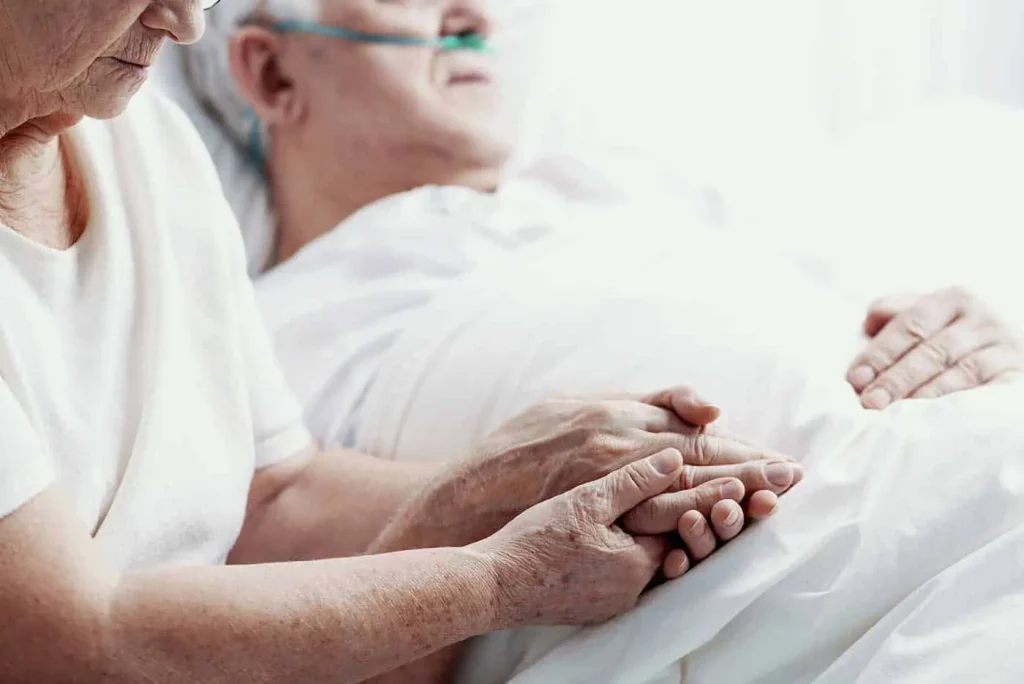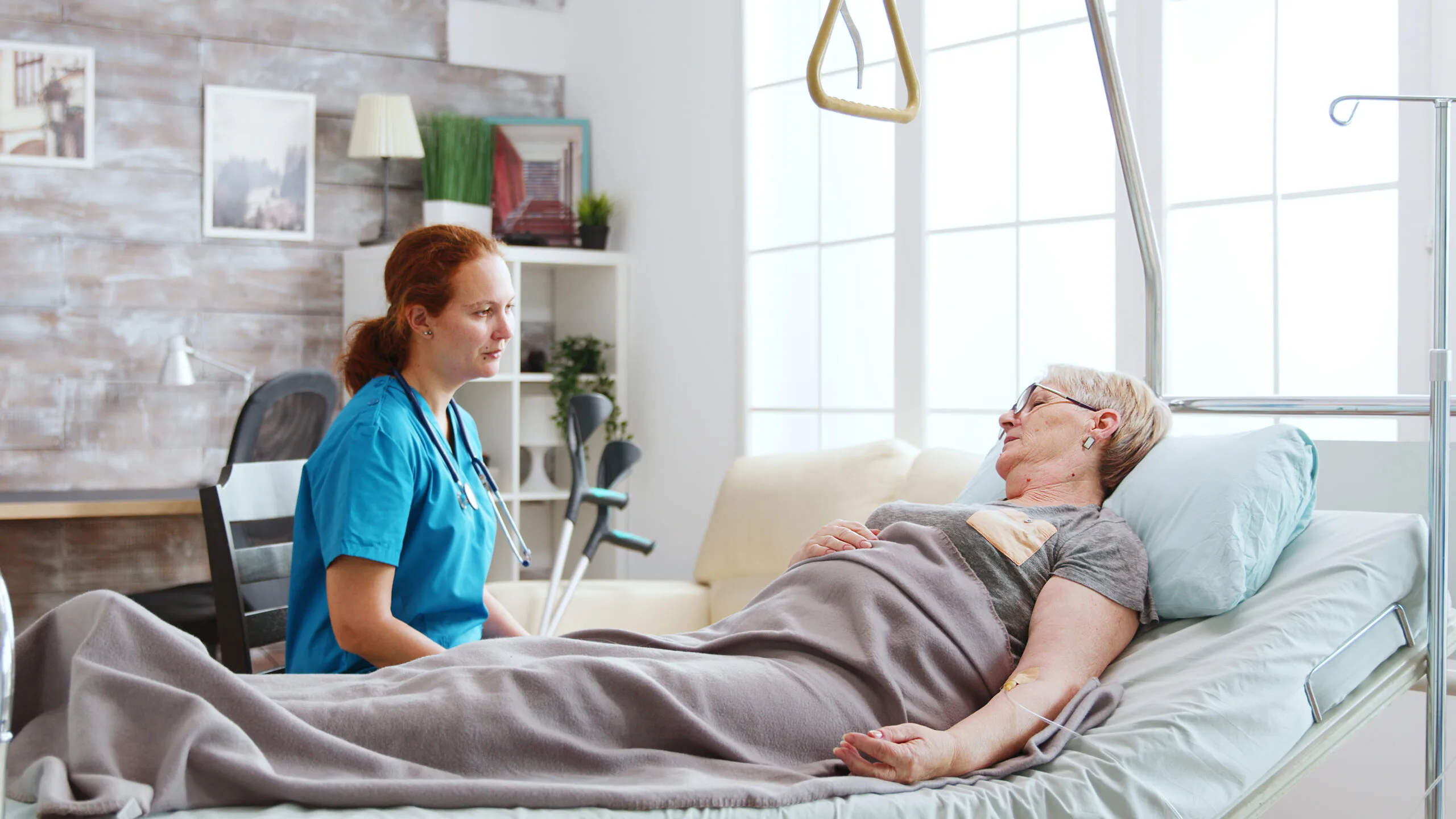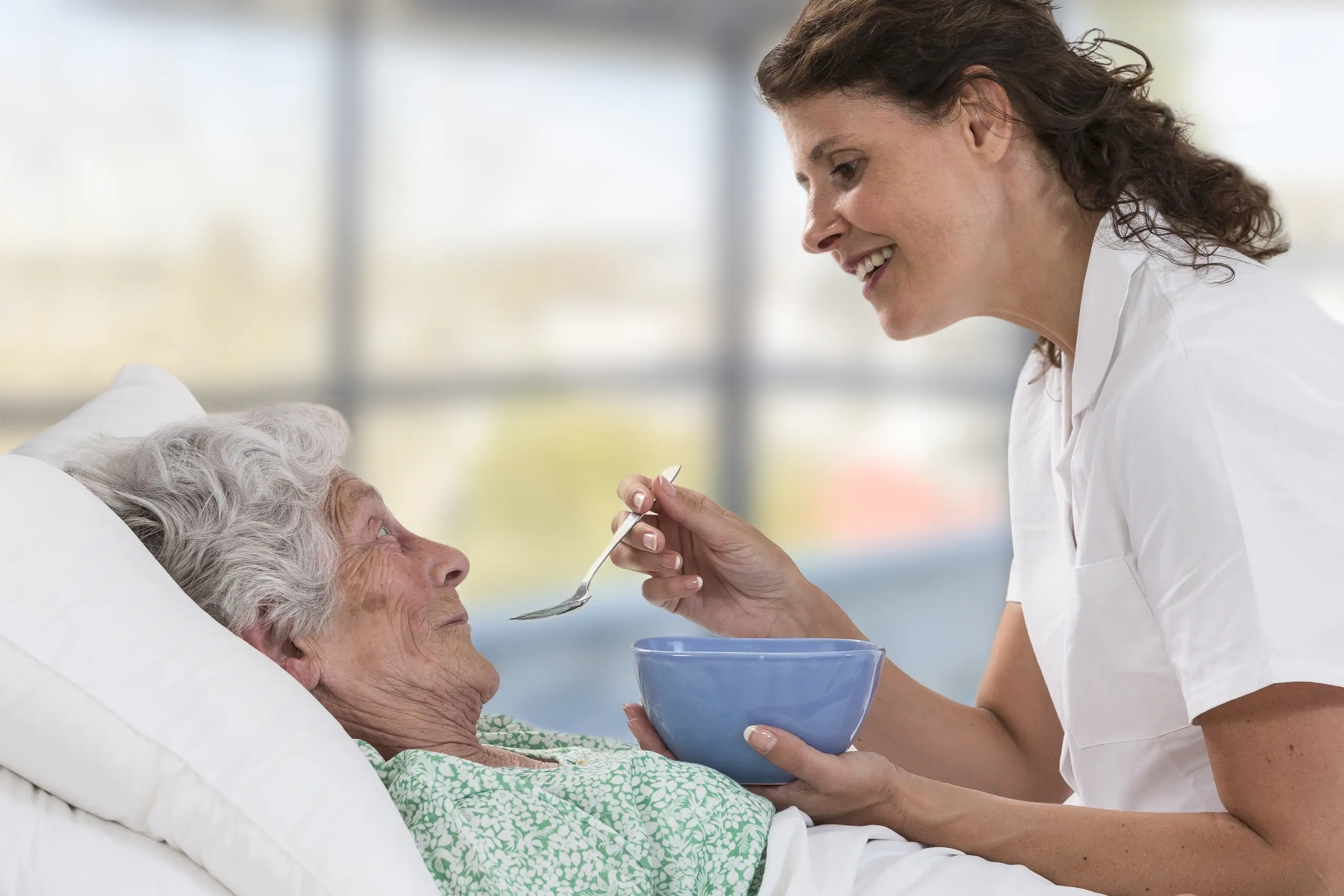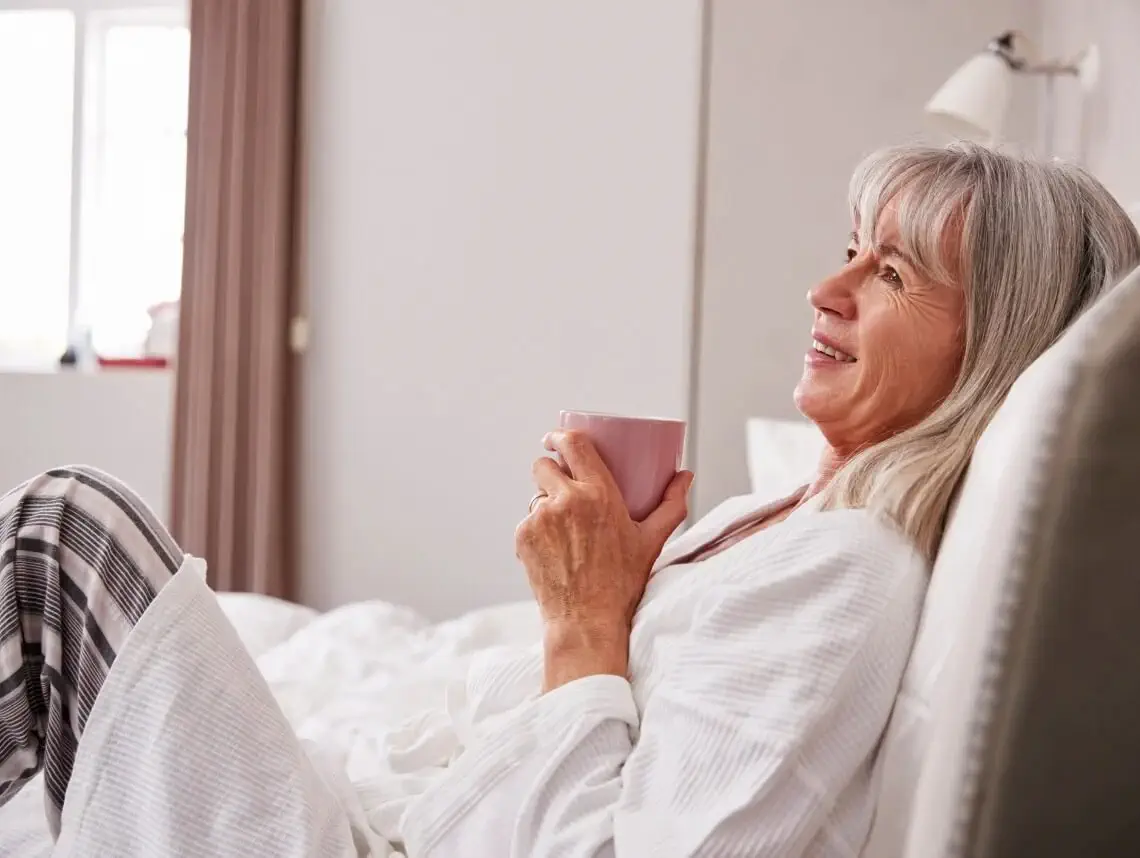
How Many Calories Does an Elderly Bedridden Person Need?
How many calories does an elderly bedridden person need? The nutritional needs of people change significantly as they age, especially in those who are bedridden due to illness or old age. These changes are due to decreased physical activity, metabolic changes, and some underlying diseases. In this article from humanhealthmag, we will examine caloric requirements for the elderly bedridden and the importance of proper nutrition in this age group.
What Are Calories?
Calories are a unit of energy often used to express the food energy in food. The energy provided by food is actually measured in kilocalories, which is the amount of energy needed to raise the temperature of 1 kilogram of water by 1 degree Celsius. This type of calorie is also known as a large calorie (Cal). One Calorie is equal to 1,000 small calories. Your body needs a steady supply of calories to perform vital functions and maintain healthy energy levels.
The number of calories you need depends on various factors including body weight, activity level, age, health, and gender. For example, people who are physically active need more calories compared to those who are sedentary. Then, how many calories does an elderly bedridden person need? Do you know that activities for bedridden patients during hospitalization is associated with faster recovery.
Why Do Different Elderly Bedridden Needs Different Calorie Intakes?
The calorie needs of bedridden older adults differ from those of healthy, active individuals for a variety of reasons. These differences are primarily due to physiological changes associated with aging and the specific conditions of hospitalization. The main reasons for this difference are:

- Reduced physical activity: Older people who are bedridden burn fewer calories to perform daily activities due to limited mobility. Their muscles work less and therefore require less energy.
- Reduced muscle mass: As we age, muscle mass decreases, especially in people who are sedentary. Muscles are the body’s active tissues and burn more calories than other tissues. Reduced muscle mass means a decrease in the body’s basic calorie needs.
- Reduced basal metabolism: Basal metabolism is the amount of energy the body uses at rest to perform vital functions such as breathing and heart rate. As we age, basal metabolism decreases.
- Underlying diseases: Many older people who are bedridden have underlying diseases such as heart disease, lung disease, or cancer. These diseases can increase or decrease the body’s calorie needs. Some diseases increase metabolism, resulting in higher calorie needs, while others decrease appetite, resulting in lower calorie needs.
- Hormonal changes: Hormonal changes associated with aging can also affect metabolism and calorie needs.
- Medications: Some medications can affect appetite and metabolism, resulting in altered calorie needs.
What types of foods are recommended for individuals with Parkinson’s? What are the best finger foods for parkinson’s?
What are the Consequences of Malnutrition for a Hospitalized Patient?
Before we say how many calories does an elderly bedridden person need? It is better to know that calorie deficiency in bedridden elderly people, especially those with limited physical activity, can have serious and widespread consequences. These consequences affect not only physical health, but also mental health and quality of life of the person.
One of the first and most obvious signs of a calorie deficit is unintentional weight loss. This weight loss can lead to muscle atrophy, decreased bone mass, and general weakness. The lack of energy from a calorie deficit can cause feelings of extreme fatigue, muscle weakness, and a decreased ability to perform daily activities.

We all know that the immune system needs adequate nutrients to function properly. A calorie deficit can weaken the immune system and make a person more susceptible to infections. A lack of protein and other nutrients essential for tissue repair can slow down wound healing and increase the risk of infection.
Calcium and vitamin D deficiencies, which are often seen in older adults, along with decreased mobility, can lead to osteoporosis and an increased risk of fractures. Also, deficiencies in certain vitamins and minerals, such as vitamin B12, can affect brain function and cause disorders such as memory loss, confusion, and dementia.
Feeling weak, tired, and helpless from a calorie deficit can lead to depression and a reduced quality of life. Ultimately, if calorie deficiency continues for a long time, it can have more serious consequences, such as an increased risk of mortality, longer hospital stays, and reduced response to treatments.
How Many Calories Does an Elderly Bedridden Person Need?
Determining the exact calorie needs of an elderly bedridden individual can be complex and varies from person to person. Factors such as age, weight, height, overall health, and level of activity (even for those confined to bed) play a significant role. Generally, elderly bedridden individuals require fewer calories compared to younger, more active adults due to decreased metabolic rate and reduced physical activity.
| Category | Approximate Calorie Range |
| Elderly bedridden individuals with limited activity | 1200-1800 calories/day |
| Elderly bedridden individuals with some mobility | 1500-2000 calories/day |
| Elderly bedridden individuals with underlying health conditions | May require more or fewer calories based on the condition |

Estimated Daily Caloric Needs for Immobilized Elderly with and without Pressure Ulcers
| Weight (kg) | Weight (lbs) | Calorie Needs (Immobilized) | Calorie Needs (Immobilized with Pressure Ulcers) |
| 40 | 88 | 752 | 1032 |
| 50 | 110 | 940 | 1290 |
| 60 | 132 | 752 | 1548 |
| 70 | 154 | 752 | 1806 |
| 80 | 176 | 752 | 2064 |
| 90 | 198 | 752 | 2322 |
| 100 | 220 | 752 | 2580 |
How Many Calories Does an Elderly Bedridden Person Need? Calorie Needs for Women & Men
The estimated daily calorie requirement for women ranges from 1600 to 2400 calories and for men ranges from 2000 to 3000. Keep in mind that these are general guidelines based on the needs of a woman who is 5 feet 4 inches tall and weighs 126 pounds and a man who is 5 feet 10 inches tall and weighs 154 pounds. Factors Affecting Calorie Needs:
- Age: Younger people typically need more calories compared to older adults who may need slightly less. This is due to a decrease in basal metabolic rate (BMR) as we age.
- Size and activity level: Smaller people or those who are less active require fewer calories, while larger people and those who are physically active need more calories to maintain their weight.
- Individual variations: Everyone is unique, and factors like genetics, hormones, and overall health can also influence calorie needs.
| Age | Daily Calorie Needs of a Man (Moderately Active) | Daily Calorie Needs of a Woman (Moderately Active) |
| 19-20 | 2800 | 2200 |
| 21-25 | 2800 | 2200 |
| 26-30 | 2600 | 2000 |
| 31-35 | 2600 | 2000 |
| 36-40 | 2600 | 2000 |
| 41-45 | 2600 | 2000 |
| 46-50 | 2400 | 2000 |
| 51-55 | 2400 | 1800 |
| 56-60 | 2400 | 1800 |
| 60-65 | 2400 | 1800 |
| 66-70 | 2400 | 1800 |
| 71-75 | 2200 | 1800 |
| +75 | 2200 | 1800 |
Concluding Remarks
How many calories does an elderly bedridden person need? The calorie needs of bedridden older adults are highly individual and depend on a variety of factors, including age, weight, height, activity level (even while bedridden), the presence of pressure ulcers, and underlying medical conditions. As can be seen in the table, an 80 kg bedridden older adult without pressure ulcers would need approximately 1504 calories per day, while someone of the same weight with a pressure ulcer would need approximately 2064 calories. Therefore, determining the exact calorie needs of these individuals requires a careful assessment by a dietitian or physician. Other factors, such as appetite, ability to chew and swallow, and use of medications, can also affect calorie needs.

Frequently Asked Questions
What foods are best for bedridden elderly?
Foods that are good for bedridden seniors should be soft, easy to chew, and contain the nutrients the body needs. Pureed foods, thin soups, yogurt, porridge, boiled eggs, cooked fish, and pureed fruits are good options. Also, foods that contain enough protein to maintain muscle mass and vitamins and minerals to boost the immune system are very important.
How to increase the appetite of the elderly?
There are various methods that can be used to increase the appetite of older people. Serving food in colorful and attractive dishes, creating variety in the taste of foods, using mild spices, serving food in small and frequent meals, creating a calm and pleasant atmosphere while eating, and using dietary supplements as prescribed by a doctor are among these methods.
